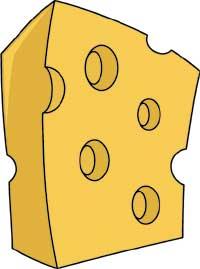Cheese: varied art

It is known that there are different types of cheese, depending on the milk used in making the cheese and some stages of the process (mainly pressed and maturing the pasta). Thus, if the maturation process is equal to or less than ten days, we will have fresh cheese (from Burgos); from 3 to 6 months are elaborate cheeses (from Idiazabal) and 6 months old cheeses.
The maturity of the cheeses also affects the composition of the product, since when ripe it loses water and is enriched in other ingredients. As an example, see the distribution we have made in the table above.
Therefore, although the June article mentioned that a dairy could be considered as 30 g of cheese on average, it should actually be 40 g of fresh and 20 g of work, since in those quantities we take approximately the same amount.
It should also be taken into account that the cheese ingredients are more suitable than those of pure milk.

In Euskal Herria we have a great variety of cheeses, since there are more than 14 types of classified cheeses, although most of them differ little. The prototype is the cheese of Idiazabal and its relatives are that of Urbia, that of Aralar, that of Entzia (realized in the mountain ranges of Andia and Urbasa in Navarre), that of Gorbea, etc. All of them are very similar, but there is another one used to rub and that by its way of doing it is very special: the old cheese. It is made in cold regions within the Basque Country and bears this name because before eating a whole piece is kept to make a new cheese (for the "mothers").
Taking this dairy product 3 or 4 times a week is very appropriate, taking advantage of the wealth we have in Euskal Herria, to enjoy our snacks and after eating.
Brief Brief Notes: Brief NotesTransgenic foodsIts name is increasingly heard and already a hundred products of these characteristics can be found in the market. The objective is to improve the properties of food by genetic techniques, without affecting the nutritional value of the food of origin or the addition of any toxin. In addition, in 1997, Europe tightened the law by requesting that the techniques used to obtain these products be taken into account and analyzed. |
| Proteins % Protein % | Fat % % of fat | Mg calcium/100g | Kcal/100g | |
Cheese of Burgos | Services Services Services | 0-9/9 | 100-160 | 50-150 |
Sections of cheese | Services Services Services | 20-28 | 150-400 | 260-350 260-350 |
Idiazabal-Grüyere | 27/24/24 | 29-24 | 600-865 | 326-384 |
Roquefort-Emmentale-Cabrales | 29-27 | 28-30 30 | 900-1.100 | 390-400 |





